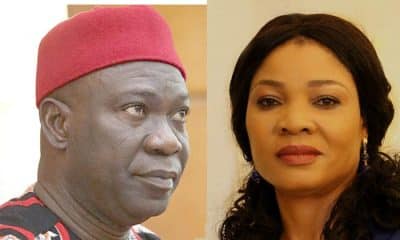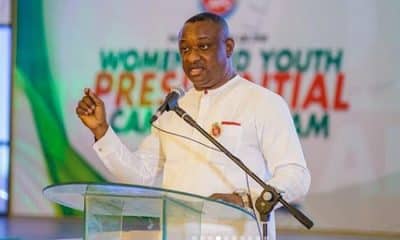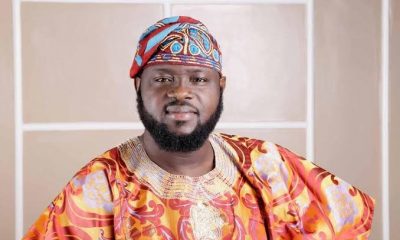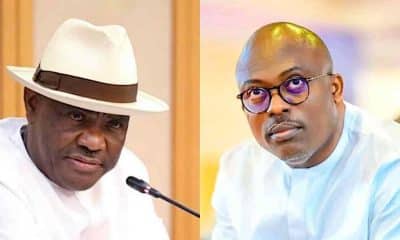Nigeria News
James Ibori: How a thief almost became Nigeria’s president
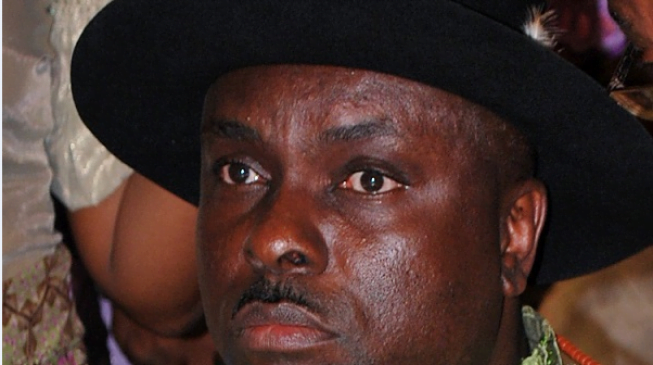

The story of how James Ibori went from convicted thief in London in the 1990s, to become governor of a wealthy oil-producing Nigerian state and then to a British prison is a remarkable one.
It is the story of a wily political operator, backing the right political horses and shifting allegiances when expedient.
Given slightly different circumstances, according to one observer, it could have seen Ibori in the presidential villa rather than a British jail cell.
Ibori’s defence in the face of allegations had always been that he had a successful business career and had made money independent of government.
But in 1991, he was working in a hardware store in the London suburb of Neasden.

Some of Ibori’s assets were in the name of his wife, sister and mistress
The prosecution in this trial told a judge he was earning around £15,000 ($24,000) a year.
He was caught by his employer allowing his wife to walk through the till he was manning without paying for goods.
They both pleaded guilty at Isleworth Crown Court and were fined.
In 1992, he was convicted for possession of a stolen credit card, which had £1,000 spent on it, and was again fined in a UK court.
‘Murky business’
Ibori then returned to Nigeria intending to become a political operator. The country was about to be tipped into a tumultuous period.
Military leader Ibrahim Babangida had scheduled elections to return Nigeria to democracy in June 1993.
Ibori worked for the governorship campaign of a friend.
The experience gave him good connections with the parties that would eventually merge to form the People’s Democratic Party, currently ruling Nigeria.
The 1993 elections were cancelled by Mr Babangida. Later that year, Gen Sani Abacha snewsed a coup, cementing the military’s grip on power for another five years.
According to Antony Goldman, who worked as a journalist in Nigeria for many years and has followed Ibori’s career closely, this is when Ibori made his first shift of political master, offering his services to Abacha.
“He had an unspecified role in security,” Mr Goldman said. “That could be anything, it was a very murky business.”
Abacha was accused of murdering political opponents and ruthlessly crushing dissent and pro-democracy movements.
In the mid-1990s, Ibori was questioned by the Federal Bureau of Investigations (FBI) in the US about how he came into the possession of millions of dollars that he transferred to accounts in the US.
The FBI suspected the money came from advance fee fraud, the infamous Nigerian 419 scam, but he was able to prove the money came from his work with Abacha, Mr Goldman said.
Abacha died in 1998 and Ibori switched horses again, attaching himself to influential northern politician Atiku Abubakar, who went on to become vice-president.
Medically impossible
In 1999, Ibori took out a mortgage on a property in Abbey Road, London.
To do that, he got a new passport with a false birth date to mask his previous convictions.

James Ibori has now been convicted three times in the UK
The birth date he chose was in fact medically impossible as it was only a month after his sister’s birthday, the prosecution told the court.
Ibori was installed as the governor of the oil-rich Delta State in the 1999 elections.
In order to take office in Nigeria, he had to swear an affidavit that he had no convictions. To do this, he used the same birth date he had made up to acquire his mortgage.
It was this evidence that would, in a London court 14 years later, spell the end for Ibori.
Soon after he became governor, Ibori paid off the Abbey Road mortgage in cash.
He went on to buy three other properties in the UK. He paid £2.2 million in cash for a house in the plush London suburb of Hampstead.
‘Bankrolled election’
In 2005 the Metropolitan Police began to take an interest in Ibori after they came across a purchase order for a private jet, made through his solicitor in London.
It was just after this that Ibori shifted horses again, switching his allegiance from Mr Abubakar to the then President Olusegun Obasanjo.

